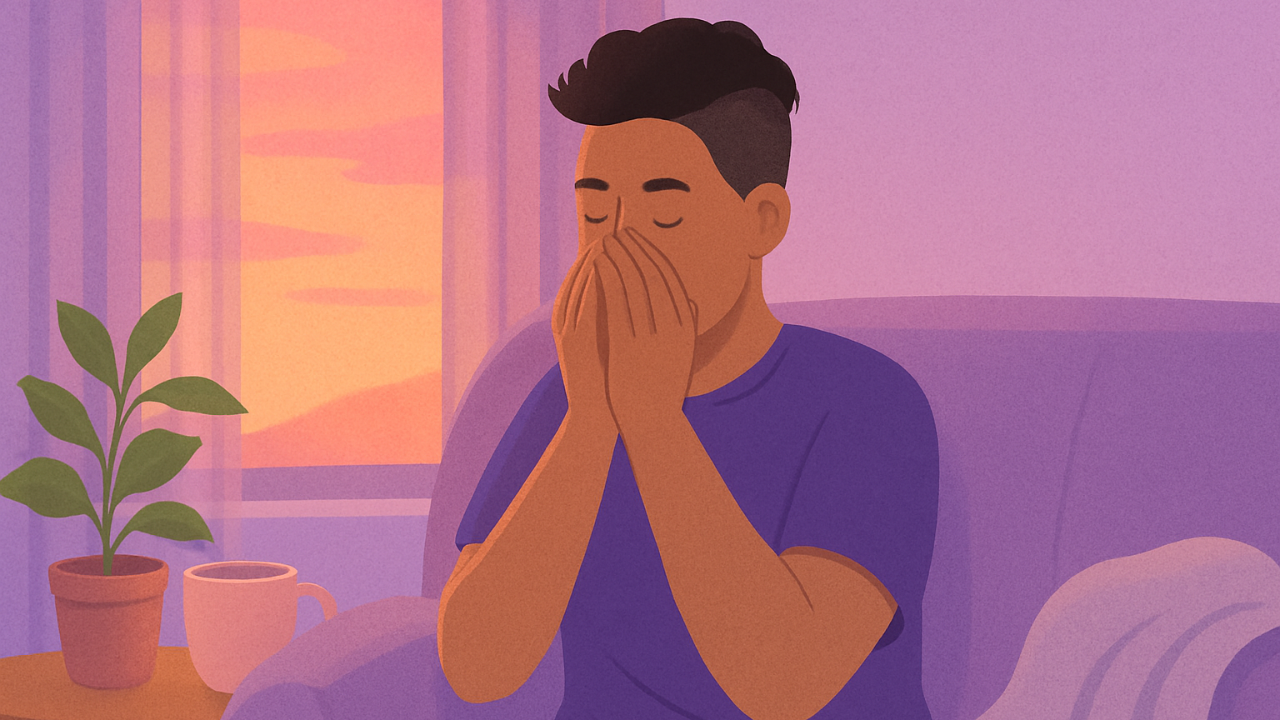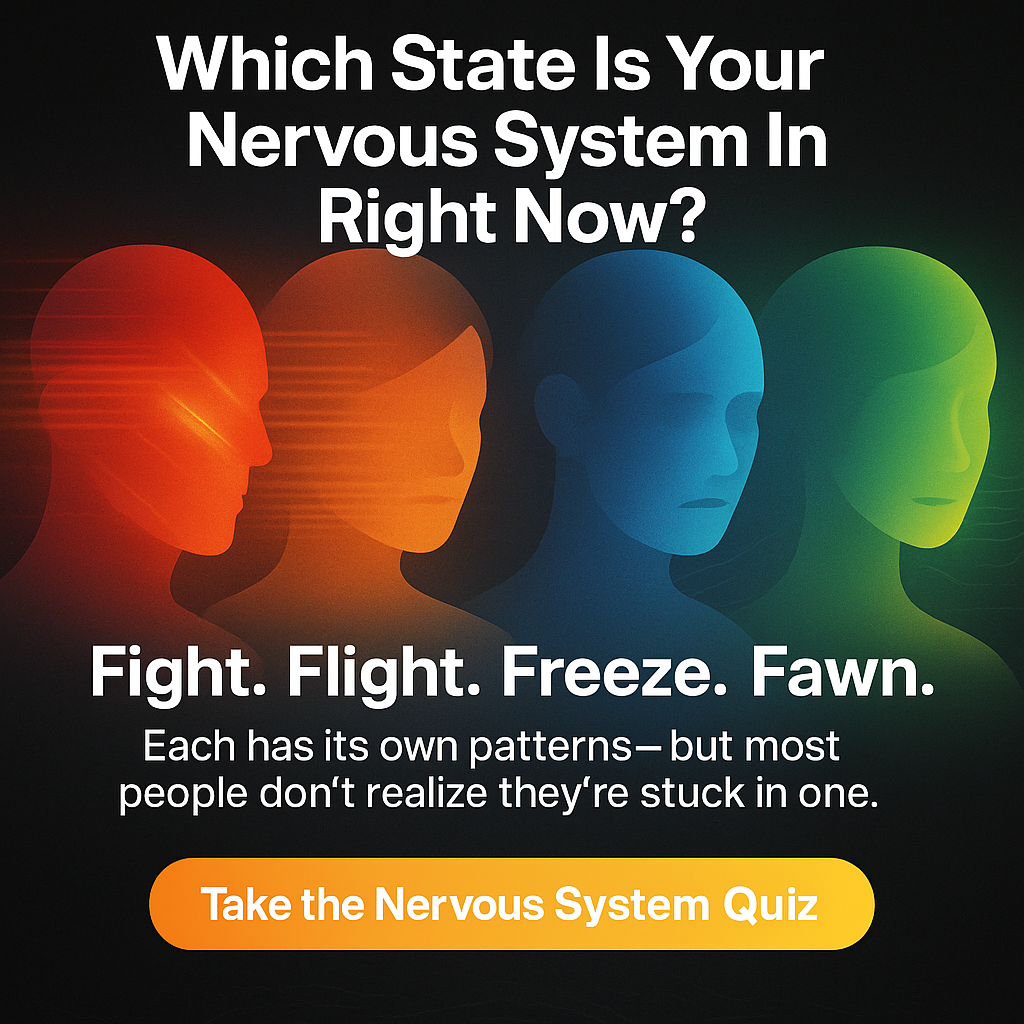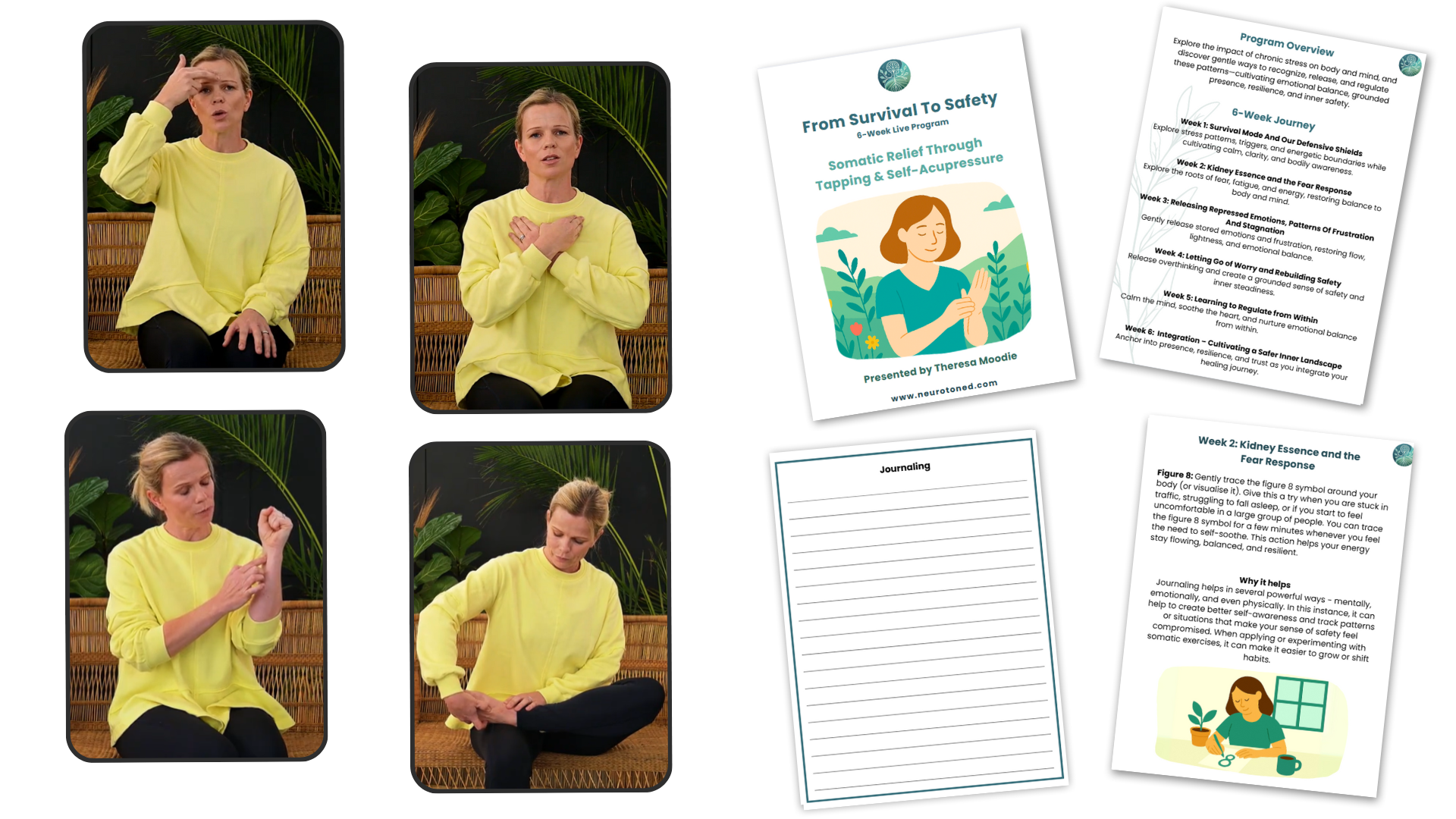
How to Stop Dizziness from Overbreathing
Sometimes your breath gets ahead of you. Maybe you feel anxious, startled, or like your body is bracing for something you can’t name. Then suddenly you feel dizzy or floaty. This happens more often when your nervous system is already stretched thin, especially if you’ve been living in that “ready to jump out of my skin” feeling described in this gentle guide on trauma activation.
Before we begin, you may want to check where your stress pattern falls using the Stress Loop Quiz. It helps you see what type of stress response you’re stuck in and which tools may work best.
Quick Answer
Dizziness from overbreathing happens because fast or forceful breathing lowers carbon dioxide (CO₂) levels in your blood. CO₂ helps regulate blood flow to your brain. When it drops too low, you can feel lightheaded, disconnected, or tingly.
The fastest way to stop it is to slow your breathing, breathe smaller instead of bigger, and let CO₂ rebalance naturally.
Why Overbreathing Makes You Dizzy
When you breathe too quickly or too deeply, you’re not actually “getting more oxygen.” You’re losing CO₂ too fast.
Low CO₂ makes blood vessels in your brain tighten, giving you the familiar swirl of dizziness, numbness, or a slight sense of unreality.
This often shows up in people whose bodies stay in high alert, similar to those who experience sudden surges of panic discussed in the article on what panic attacks are and why they happen.
If deep breaths make you more anxious, you may relate to the pattern described in why deep breathing sometimes backfires.
Simple Fixes That Help in Minutes
1. The Hands-Cup Breathing Reset
- Lightly cup both hands over your nose and mouth.
- Breathe normally for 20–30 seconds.
- Let your breath soften rather than deepen.
This helps rebalance CO₂ without forcing anything.
If you’re someone who tends to dissociate or go numb when overwhelmed, you may find this grounding moment similar to what helps in why your body goes numb during stress.
2. Slow Nasal Breathing With Longer Exhales
Try:
- Inhale through your nose for 4
- Exhale gently for 6
- Pause for 2
Keep it light, like you’re trying not to fog up a mirror.
3. Relax Your Upper Body
Tension in your shoulders, chest, or jaw can keep your breath stuck in “alarm mode.”
Let your shoulders drop. Unclench your jaw. Let your belly soften.
This signals safety to your nervous system.
4. Add Gentle Movement
Stand up, sway lightly, or walk slowly around the room.
Movement helps your body restart natural breathing rhythms.
If panic feels close to the surface, try incorporating ideas from grounding during panic without talk therapy.
A 7-Day Gentle Breath Reset Plan
Day 1: Notice how often you sigh or gulp air. Each time, pause and loosen your shoulders.
Day 2: Try 10 rounds of slow nasal breathing with longer exhales.
Day 3: Practice cupping your hands for 20 seconds whenever you feel lightheaded.
Day 4: Add a simple grounding tool like orienting or naming five things you see.
Day 5: Try one small movement-based reset like swaying or pacing slowly.
Day 6: Pair your breathing with a soothing activity, like making tea or looking out the window.
Day 7: Journal what your dizziness feels like and what tends to help. This can deepen awareness, similar to what’s explored in building resilience to withstand stress. You may also find some helpful journaling prompts in How to Track Nervous System States (Journal Prompts).
Common Sticking Points
“I feel worse when I slow my breath.”
Your body may be used to fast breathing as a safety strategy. Try micro-changes: shorter exhales, or simply breathing through your nose.
“I’m scared I might faint.”
Overbreathing dizziness is uncomfortable, but not usually dangerous. Gentle movement often helps more than trying to breathe “right.”
“What if this isn’t from anxiety?”
If you have severe, frequent, or unexplained dizziness, consider speaking with a professional.
FAQs
Can overbreathing cause numb fingers or tingling?
Yes. Low CO₂ affects nerve sensitivity, creating tingles in the hands, feet, or lips.
Is overbreathing the same as hyperventilating?
Yes, though hyperventilation often sounds dramatic. Overbreathing can be as subtle as breathing too deeply for too long.
Why does my body start overbreathing without permission?
Your nervous system may be stuck in a defensive pattern, similar to what is described in trauma-informed care principles.
How long until the dizziness stops?
Often under two minutes once breathing slows and CO₂ normalizes.
More Gentle Reads
Disclaimer: This article is educational and not medical advice. If dizziness is persistent, severe, or accompanied by other concerning symptoms, consider speaking with a qualified professional.
Discover Your Vagal Tone
Find out how dysregulated your nervous system is and get your personalized roadmap to feeling calm, energized, and in control


